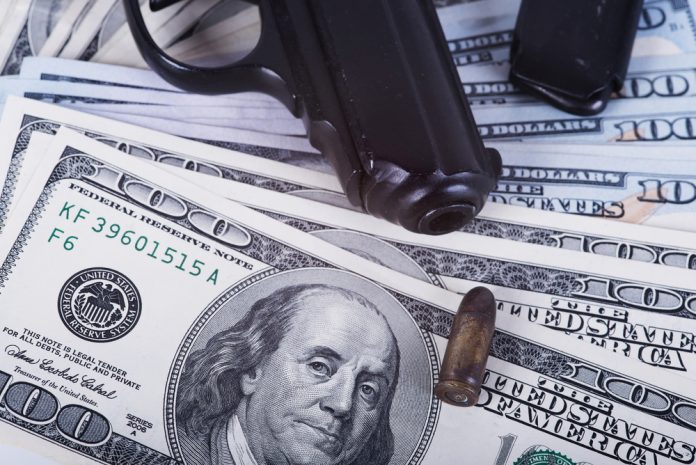The mass shooting that took place on Wednesday at a school in Florida was the eighth such shooting so far in 2018 – and we’re only six weeks in. The horrific incident has renewed calls for tighter gun regulation in the US, something that has so far been heavily resisted by the Senate despite an increasing number of mass shootings in public places. Even amendments introduced to the house after the tragic shootings in San Bernardino and Sandy Hook have failed to pass.
So, despite a growing opposition to the current laws on gun ownership from both US citizens and those abroad, why does the US continue to resist change?
Constitution
One major reason for the lack of progress is that the right to own a gun in the US is written into the Constitution. The Second amendment reads: “A well regulated militia, being necessary to the security of a free state, the right of the people to keep and bear arms, shall not be infringed.”
This ambiguous statement has so far allowed the National Rifle Association, the US’ major gun lobby, to construe its meaning as that that all US citizens have a absolute right to carry arms wherever they go. This ambiguity makes it difficult to create limits on gun use that don’t contravene the wider interpretation of the Second amendment; thus any legislative changes that restrict the use can be arguably ‘unconstitutional’, creating further challenges.
In turn, the focus on every individual having the right to own a firearm leads to further problems. It is due to this that there is no law in place that prevents people on the terrorist watch list from buying guns. The man who shot 49 people in an Orlando nightclub was previously on a US terrorist watch list, but the US government had no power to prevent him obtaining a firearm.
Economic strength
The second major reason that legislative changes to gun ownership have failed is the undeniable economic power of the firearms industry.
According to reports by the Firearms Industry Trade Association in 2017, 141,500 jobs are created directly by the industry. Including suppliers and induced jobs related, the number reaches 301,123. This adds up to a total of $15,183,424,700 in wages – a significant contribution to the US economy.
In fact, in 2016 the firearms and ammunition industry was responsible for as much as $51.3 billion in total economic activity in the country, bringing in as much as $6,538,736,300 in tax revenue.
The gun and ammunition industry turns a $1.5 billion profit annually, and whilst the majority of demand is from domestic buyers, the gun industry also benefits US exports. From 2011 to 2015, the US was the biggest exporter of firearms in the world, accounting for 33 percent of all international sales. America’s gun exports were larger than those of Russia, who took second place.
Ironically, the economy of the gun industry was boosted further by Barack Obama’s critical stance. Whilst Obama argue strongly for increased regulation on gun ownership during his tenure as President, calling on Congress to expand background checks on both online sellers and buyers, fear that regulation may be tightened ironically led to a boost for the sector. US citizens hurried to buy guns ahead of regulatory changes and in the ten years to 2015, the number of US companies licensed to make firearms jumped 362 percent. Sales of all handguns between 2004 and 2013 increased fivefold.
Political strength
Adding to the economic strength of the gun industry is the influence of the NRA within the White House. President Donald Trump’s candidacy was endorsed by the NRA, and the lobby spent a total of $54.4 million during the 2016 election campaign in “independent expenditures” – spending for or against a candidate but without directly contributing to a campaign. Of the $52.6 million spent, the Democrats received $265,000 – meaning the majority of support went to supporting the Republicans. Donald Trump received the most gun lobby funding of any presidential candidate ever.
Donald Trump was criticised for his tweet in the aftermath of Thursday’s shooting, continuing the theme set in the wake of similar events by sending his ‘prayers’:
My prayers and condolences to the families of the victims of the terrible Florida shooting. No child, teacher or anyone else should ever feel unsafe in an American school.
— Donald J. Trump (@realDonaldTrump) February 14, 2018
Many wonder why, in the wake of so many similar attacks in the US, government action has so far been limited to sending prayers. The contribution of the NRA to Republican campaigns and its indomitable presence in the White House is more than likely to be the answer.

